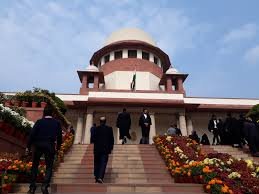A criminal appeal arose from a judgment dated August 20, 2024, by the High Court of Chhattisgarh. The High Court had quashed proceedings stemming from an FIR (bearing no. 608 of 2016), registered on November 29, 2016, at Police Station Mohan Nagar.
The FIR was lodged by the 1st appellant against the 2nd to 4th respondents for offenses under Sections 3 and 4 of the Dowry Prohibition Act, 1961. The 2nd appellant is the daughter of the 1st appellant. The 2nd, 3rd, and 4th respondents are identified as the father, mother, and brother, respectively, of the 5th respondent.
The FIR detailed several specific allegations:
On April 15, 2016, the 5th respondent met the 2nd appellant and expressed willingness to marry her. On June 4, 2016, the 4th respondent came to Durg to discuss the marriage and allegedly demanded Rs. 10 lakh for marriage and a vehicle.
On July 10, 2016, during the “tilak ceremony,” Rs. 2 lakh in cash, along with clothes, silverware, and other articles, were claimed to have been given to the 2nd to 5th respondents as a gift by the 1st appellant.
Negotiations continued, and the 1st appellant booked a venue (Indralok Bhawan) for Rs. 61,000 as advance on June 18, 2016. A hotel (Sheetla) was also booked to accommodate guests for two days upon due advance payment.
On August 21, 2016, during a telephonic conversation with the 3rd respondent, the 1st appellant was again demanded Rs. 10 lakh and a car as dowry. The 1st appellant refused, leading the 2nd to 5th respondents to call off the marriage.
Investigation and Charge-sheet: The FIR was duly investigated, and a charge-sheet (no. 116/2018) was filed on May 27, 2018, under Section 173(2) of the Code of Criminal Procedure (Cr. PC), leading to the offenses being filed before the trial court.
Marriage Negotiations Failure: It was undisputed that negotiations for the solemnization of marriage between the 1st appellant and the 2nd respondent had failed due to the inability of the 1st appellant to meet the continuous demands for dowry raised by the 2nd respondent and the co-accused.
Law Involved
Dowry Prohibition Act, 1961: Specifically, Sections 3 and 4, which pertain to giving, taking, or demanding dowry.
Section 482, Code of Criminal Procedure, 1973: This section grants inherent powers to the High Court to quash criminal proceedings, but this power should be exercised sparingly.
Section 173(2), Code of Criminal Procedure: Relates to the police report submitted after investigation.
Legal Principles for Quashing FIRs: The sources discuss principles such as whether allegations prima facie constitute an offense and whether criminal proceedings are mala fide.
Reasoning
High Court’s Error: The High Court quashed the FIR based on its view that the allegations were “vague and omnibus in nature and no specific allegations are made against them”. The High Court concluded that the FIR did not disclose any offense committed by the 2nd, 3rd, and 4th respondents.
Supreme Court’s Disagreement: The Supreme Court found that the High Court committed a “serious error” and a “grave failure of justice” by exercising its inherent power under Section 482 Cr. PC.
Specific Allegations Exist: The Supreme Court noted that the FIR contained “specific and definite allegations with particulars of dates and time being disclosed,” which prima facie contained ingredients of offenses committed by the 2nd, 3rd, and 4th respondents. The allegations explicitly state that the 2nd, 3rd, and 4th respondents demanded dowry.
Misrepresentation and Mala Fide: The High Court’s decision to quash was partly influenced by the 2nd respondent’s counter affidavit, which was seen as an attempt to buttress a contention regarding misrepresentation. The Supreme Court emphasized that whether there was misrepresentation or if the proceedings were mala fide is a question of fact that should be decided at the stage of trial, and not by quashing the FIR. Quashing on these grounds without proper findings by the trial court is inappropriate, especially if it returns findings on the question of guilt.
Scope of Quashing Power: The Supreme Court reiterated that when considering quashing an FIR, the court must view the allegations as they are and determine if they, even if accepted entirely, prima facie constitute an offense. The High Court’s failure to consider what was “required of the 1st appellant to allege that could, in the view of the High Court, constitute full and fair disclosure of offences” was noted.
Context of Bhajanlal Case: The judgment references the State of Haryana v. Bhajanlal case, stating that the criminal proceedings were not quashed in that case where the allegations were “vague and omnibus in nature”. This underscores that the presence of mala fide intent must be manifest on the face of the FIR to warrant quashing in that category, which was not the case here.
Holding
The Supreme Court granted the appeal. The impugned order of the High Court, which quashed the criminal proceedings, was set aside. The Supreme Court clarified that the criminal proceedings arising out of the subject FIR shall be taken to their logical conclusion in accordance with law.
KRISHNAKANT KWIVEDY V. STATE OF CHHATTISGARH
Supreme Court: 2025 INSC 958 (DoJ 08-08-2025)






